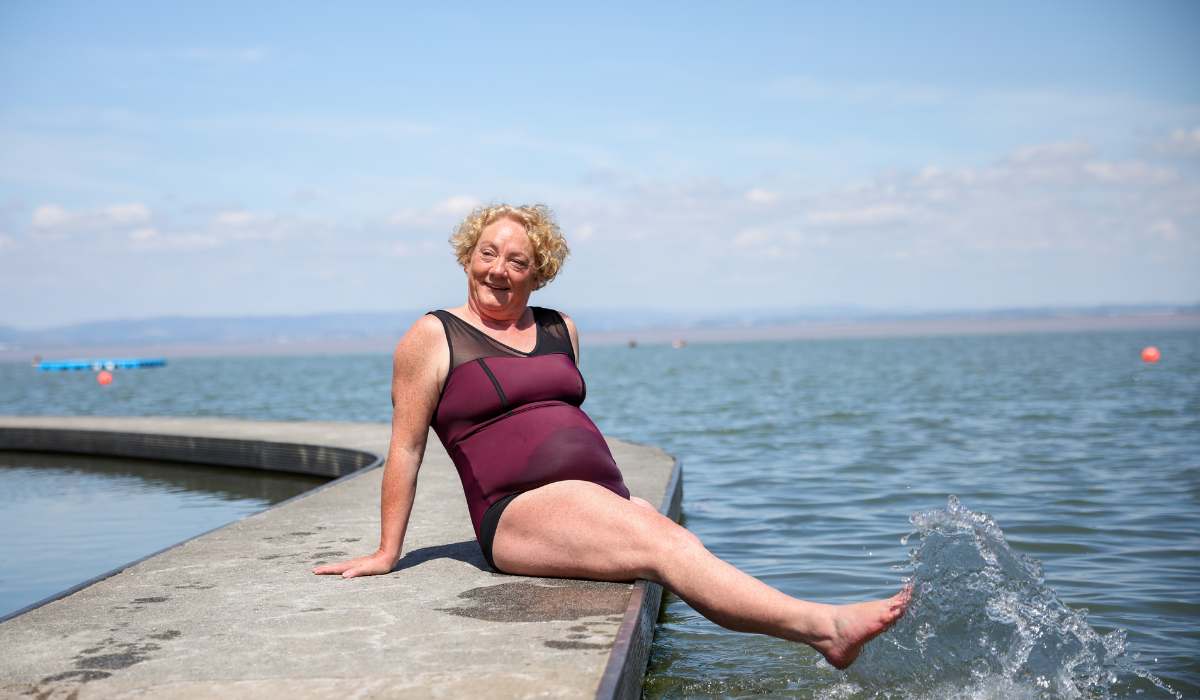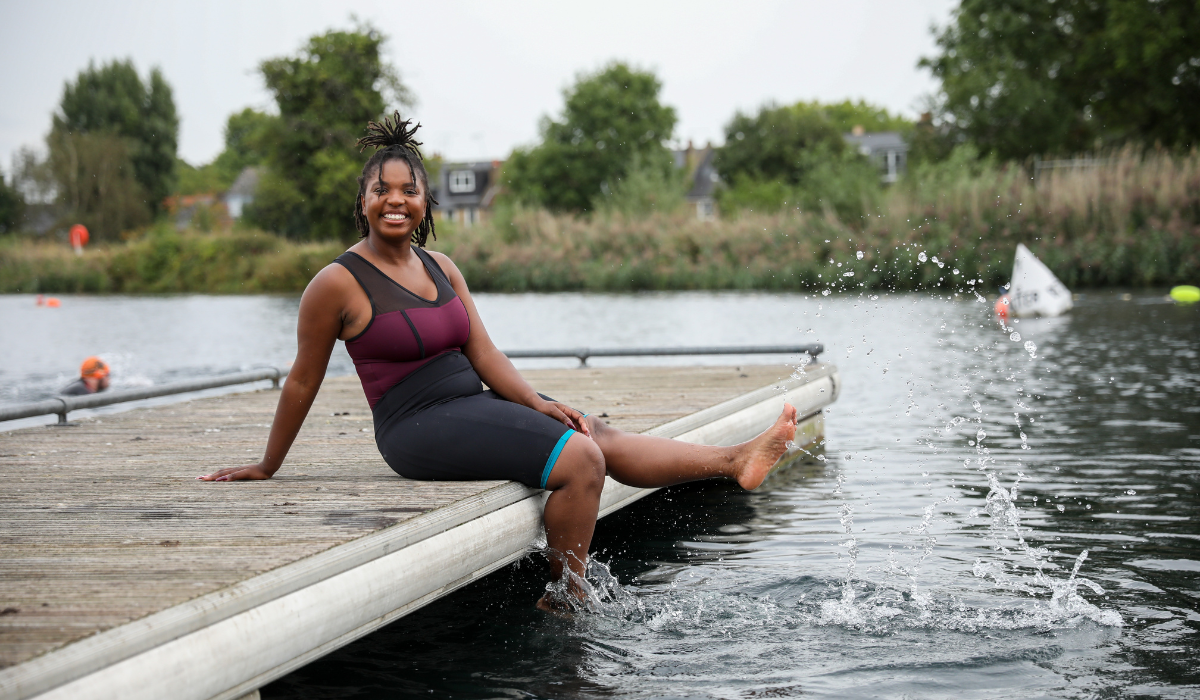Your Bag is Empty
Free UK delivery on all orders over £100. Free UK returns.

Conventions, laws, cultural norms, social expectations – everything from our behaviour to the way we look is dictated by society. But, in the era of women's liberation are we still oppressed by social rules?
The answer is frustratingly, yes. We may be allowed to show our knees, take the contraceptive pill and work in politics, but we’re still fighting for equality. Take our appearance as an example – the ‘rules’ around how we style ourselves have relaxed, but we are still bound by expectations and ideals, which are magnified by social media. To understand this, consider the word ‘should’ in your thoughts about your appearance – I ‘should’ remove the hair on my bikini line, I ‘should’ drop a dress size, I ‘should’ use an anti-aging moisturiser... I ‘shouldn’t’ wear a bikini.
But why shouldn’t you wear a bikini? Who makes these rules and what happens when we break them?

Rebels for the cause
For as long as women have been oppressed, there have been rule breakers. Activists like Emmeline Pankhurst, rebels like Rosa Parks and trailblazers like Annette Kellerman, the first professional swimmer to wear a one-piece swimsuit in the early 1900s.
These days, you don't have to look far to find disrupters, activists, dissenters and iconoclasts. Their acts of rebellion might be so quiet, small or personal that you barely notice them, but they still turn societal expectations on their heads and effect change. These women challenge cultural norms and defy conventions. You might know one, you might be one.
One such woman is Emma. She’s not only a rebel herself, but she also encourages grown women to rebel through play with her organisation Playful Den. By getting into the ‘flow state’ of playing, Emma told us in her Body Story, we’re in the moment, not thinking about how we look.
“Everyone is entitled to the high-level joy that comes with playing but to play you have to let go, lose control, be a bit silly,” she says. “However, I think being self-conscious about your body can be a barrier to play. You can’t really play and be worrying about your body – if you are, you’re not really at play.”
When was the last time you played? It’s something we curb as we grow up, so it might have been when you were a teenager, perhaps even younger. And it was probably at a younger age than your brothers because girls ‘grow up’ faster than boys. That doesn’t just mean that girls hit puberty before boys, studies show that they’re still expected to do more household chores at a younger age and that maturity and being sensible is more valued in girls.
In South Wales, Dr Michaela ‘Mickey’ James runs a group called ‘Girls to the Front’ which promotes better self-esteem in teenage girls through play. In her Body Story, she explains why play is so important.
“I believe in the value of play because I think it's really important for our development, not only when we're younger, but also when we're older. I think we lose the ability to play and we put up loads of barriers because we think it's just messing around,” she says. “I'm a huge advocate of tiny acts of rebellion, for doing stuff to rebel against what is expected of you, especially things you can do personally and individually for yourself… Like, going in to the sea and splashing about, doing doggy paddle and diving under waves is play and it’s so valuable.”

Defying the odds
If playing is an act of rebellion against what’s expected of our behaviour, then what other conventions do we disrupt? A big one is appearance. In fact, in June 2022, we did a whole campaign around sticking the finger up to beauty standards.
Beauty standards are impossible to live up to when you’re young. But, as we age, the pressure doesn't go away. Women seem to be expected to capture eternal youth – and when we fail, we disappear into a world where wrinkles and grey hair act as a kind of invisibility cloak. In some ways that invisibility is nice – we don’t get wolf-whistled at by builders, we grow closer to our communities of other women and we get a bit more freedom to be ourselves. But we can also experience a cancel culture when it comes to being taken seriously – especially when we don’t fit the mould of what’s expected for our age.
And yet, pushing against those expectations can give us a new perspective on ourselves. Take Naomi and Mary for example, both in their sixties, Naomi proudly wearing a bikini, Mary accomplishing super-human channel-crossing swims.
In her Body Story, Naomi told us how it felt to be older and single after her husband passed away. “One of the biggest things about being single in your 50s is you feel very invisible,” she says. “[But] when someone dies because they are sick you realise that these things about your body just don’t matter… I love that I’m liberated from worrying about my body and I love that my face shows my story. I feel proud of my wrinkles: they have felt my joy and my pain. I love that my face celebrates my knowledge and experience of life.”
For Mary, it was her battle with cancer that changed her attitude towards beauty standards. In her Body Story, she describes how being active after losing her leg at the age of 17 helped her embrace her differences.
“It was like, go out and live your life and if there's a beautiful lake, well, swim in it… I began to appreciate far more the beauty of nature and the beauty of the human body and how much it can actually adapt,” she says. “I began to embrace the differences and feel more confident with difference.”

When discrimination multiplies
For some of us, rebellion is harder than for others. It’s one thing to feel outraged by the way society oppresses women, but it’s quite another thing to fight against that oppression – especially when it comes on multiple levels in the form of intersectionality.
“Often, even when I'm leading a hike, people come up to me and go, do you need help? Are you lost? Or, when I'm teaching someone to swim, I get asked, are you guys ok? Can you swim?” Kelly told us in her Body Story. “There's so many layers to that. It's being in a female body. It's being young. It's being a person of colour – it’s being all of the things that I am. That definitely challenges people's perceptions on what they expect to see.”
It seems mad that just being in a space or doing an activity should challenge people’s perceptions. But it does, especially when being female is combined with being a person of colour, disabled, older or in a bigger body.
“When I look at social media and see bigger people exercising in the gym, I just think about how they're feeling when they get congratulated for being there. It’s just them and you can't congratulate them for living. Like, you're effectively telling them that they shouldn't be there,” says Becca in her Body Story. “For me, swimming is also fitness. If I don't swim, then I'm not looking after my body. I'm riddled with injury anyway, so swimming is a low impact sport that I can do. If I let things like the way I see my body stop me, then I'm stopping my fitness.”

Defying expectations
Stories like Kelly’s and Becca’s show us that, as women, we’re still expected to look and behave a certain way. And if we happen to be non-white, fat, old and/or disabled on top of being female, those expectations are even stronger and more restrictive. A fat woman in a gym? A young, black woman teaching open water swimming? A post-menopausal, disabled woman in a bikini?
Society makes rules, but we should be encouraged by what happens when we break them. Like Annette Kellerman who dared to wear the first one-piece instead of a dress and pantaloons in 1907, changing women's swimwear forever, our defiance, our rebellion supports others to rebel, and eventually, real change happens.
So, what have learned from Body Stories like Emma, Mickey, Naomi, Mary, Kelly and Becca’s? Eff your beauty standards, cultural norms and societal expectations and do what makes you feel good. Play more, be louder, occupy more space and if you want to – wear the bloody bikini.